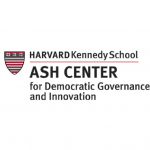Wainwright, Alaska
Michael (Mike) Nabers is from Wainwright, Alaska, a small town of about 500 people near Barrow in the North Slope Borough. Growing up attending school in Anchorage and spending summers in his hometown, Mike never pictured himself as an engineer. In fact, he planned to join the armed services after high school in order to attend college. That plan changed, though, after Dr. Herb Schroeder recruited him for ANSEP just a few short years after Schroeder founded the program.
“I was not familiar with any college opportunities, scholarships or that I even had the potential to become an engineer,” Mike said. “Herb found me while I was a junior in high school when he was recruiting for the very first Summer Bridge. Without it, my life would have been completely different.”
When Mike entered the ANSEP pipeline in 1999, he was the ninth Summer Bridge student and the 17th University Success student out of 22 college students that year. While the program was still in its growing stages, Mike will tell you that support from ANSEP and his peers throughout his college career were the keys to his success as a student.
Today, Mike is a man of many titles: University of Alaska Anchorage graduate, ANSEP alum and former staff member, as well as Alaska Native Tribal Health Consortium (ANTHC) operations engineer. While Mike didn’t always picture himself becoming an engineer, the career he built with the support of ANSEP has brought his professional career to Hawaii, Texas and nearly every corner of Alaska. This has given him an opportunity to learn about several aspects of the industry that have inspired him to give back. One of these is a lack of Alaskan engineers who understand what it’s like to live in rural Alaska.
“I’d heard of and seen many outsourced projects. Recently, I visited a community where a building was manufactured in the lower 48 and shipped up to Alaska. It’s a great looking building, but it did not take into account the facilities available in the community. Trying to tie that to the water system was certainly a feat,” Mike said. “That’s why it’s important to have engineers who were born and raised here. We have a better understanding of what our communities need and can translate that into our work.”
According to Mike, that’s the importance of ANSEP and STEM education in Alaska. Working as an engineer for ANTHC, he now supports rural community water and sewer facilities as well as their operators. They facilitate equipment efficiency improvements and replacement parts that make sense for rural communities to help reduce utility bills and provide clean water to villages like his hometown. Being able to make a positive impact on a community is something he hopes other students like him will do one day.
“Knowing I am able to make a positive impact on the quality of life of our people by providing clean drinking water and sanitation services is the best part of my job. While the work is not glamorous, it is essential for a healthy life. We have 27 communities where every infant, toddler, child, adult and elder is my client, and it is my honor to serve them.“
Today, Mike not only gives back through the legacy he left at ANSEP and as an ANTHC engineer, he continues to share what he’s learned with current students in the program. Thanks to a generous partnership with ANTHC, Mike recently led a lesson on water filtration for 24 ANSEP Acceleration Academy students, the future engineers of our state. Mike is a true inspiration to all of us at ANSEP, and we can’t wait to see what’s in store for his future as an engineer.
A final note from Mike to all ANSEP students: Those recitation sessions you love so much? The idea was developed from none other than Mike himself, he claims.
“Physics was one of my favorite classes in high school, but college was a whole different story. It was much more of a struggle. One day Herb asked what would help me get through the course. I told him I wanted a physics tutor and a classroom to study in. He made it happen, and we all passed the class,” Mike said. “That was in 1999, and ANSEP now has something called recitation, which all students must attend. So, to all those who love recitation, you’re welcome. For those who don’t, I’m sorry!”




